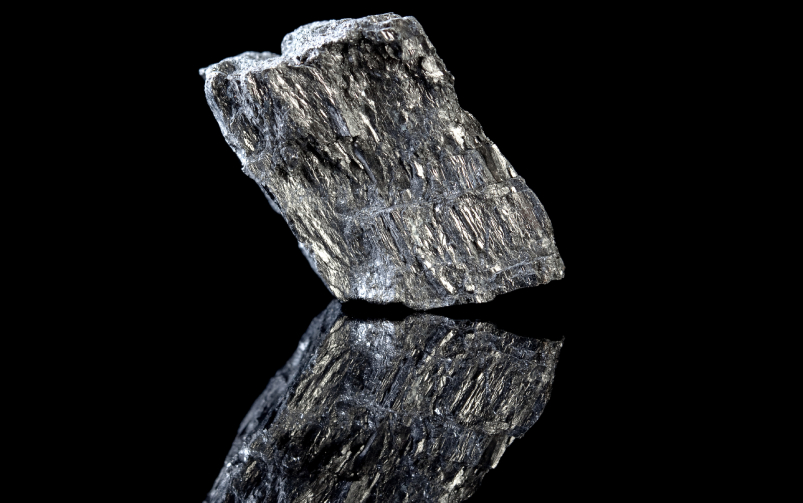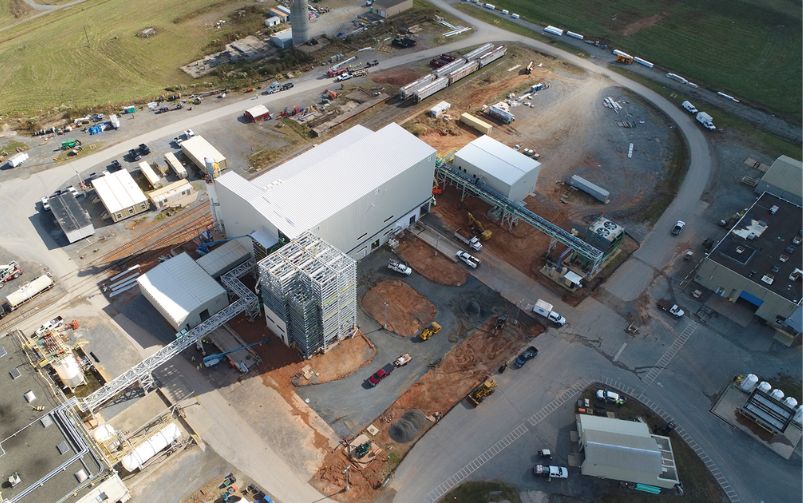De Beers Group said it is assisting employees of the Gahcho Kué diamond mine who need to evacuate the Yellowknife region due to wildfires. Courtesy of De Beers Group.
Welcome back to your weekly mining news recap, where we catch you up on some of the news you may have missed. This week’s headlines include Mexico’s mining chamber calling for an end to the Peñasquito strike, mining groups pushing for a one-year extension on the implementation of the Modern Slavery Act and B.C. junior miners asking for provincial investments to help them take advantage of the critical minerals boom.
Residents of Yellowknife, as well as two neighbouring First Nations communities, have been ordered to evacuate the area by Friday at noon due to an approaching wildfire, as reported by The Canadian Press. De Beers Group said it was assisting some employees at its Gahcho Kué diamond mine who resided in the area and were asked to leave, according to Reuters. It added the mine will continue to operate. Rio Tinto’s Diavik diamond mine, which is also located in the territory, has donated $250,000 to the United Way Northwest Territories to support its wildfire response.
Canadian industries, including mining groups, are pushing back against the country’s planned January launch date of the Modern Slavery Act, as reported by Reuters. The law is intended to fight forced and child labour in supply chains, but some groups have said there is currently a lack of reporting and procedural guidelines in the law. Ben Chalmers, vice-president of the Mining Association of Canada, said that the organization is not disputing the law’s principles or aim but is seeking a one-year extension to allow for better reporting. Under this law, companies will be required do their first reporting on or before May 31, 2024.
A consortium of Ford Motor Company and South Korean partners EcoProBM and SK On Co, Ltd. have chosen Bécancour, Quebec, as the location for a new $1.2 billion electric-vehicle battery materials plant, as reported by Reuters. The facility is expected to produce 45,000 tonnes of cathode active materials (CAM) per year for Ford electric vehicles. The consortium will receive a conditional loan of $322 million from the federal government and the same amount from Quebec as a partially forgivable loan. The facility is expected to be operational in the first half of 2026.
Copper has now been included in the U.S. Department of Energy (DOE)’s 2023 Critical Materials Assessment, as reported by Proactive Investors. The mineral was included in the DOE’s list due to its use in the automotive industry and renewable energy technologies. The United States Geological Survey (USGS)’s 2022 list of critical minerals, published in February, excluded copper because the USGS said it is not at risk of undersupply. The USGS has not reviewed its decision since, despite industry advocacy.
Mexico’s Camimex mining chamber has called on the authorities to help find solutions to end a strike at Newmont Corp’s Peñasquito project, as reported by Reuters. Peñasquito, the country’s leading gold mine, has been shuttered since June, when Newmont suspended operations after a strike was launched by the National Union of Mine and Metal Workers of the Mexican Republic. The company has withdrawn its annual output guidance for the project, after it reported the mine produced 38,000 ounces of gold in its second quarter, down from 121,000 ounces in the same quarter last year.
An S&P Global report stated that after the August 2022 U.S. Inflation Reduction Act (IRA) sparked a race to lock down the supply of metals used in electric vehicles and other energy transition applications, the mining industry faces “considerable challenges” meeting larger-than-expected demand for the metals, as reported by Reuters. According to the report, the demand for lithium, nickel and cobalt is expected to be 23 times higher in 2035 than in 2021, and copper demand is likely to double over the same period. It stated that while the IRA is working as intended by driving investments in new projects, permitting issues are hampering its aim.
Junior miners in B.C. said that they require extended support from the provincial government for the province to become an important producer of some of the materials needed for the energy transition, as reported by CBC. Currently, the province is spending $6 million over three years on a critical minerals strategy to provide a framework for exploration, extraction, processing and manufacturing, which should be available in early 2024. The Association for Mineral Exploration B.C. said it wants the 2024 provincial budget to include more investments to support critical mineral geoscience work, to expedite permitting and to support exploration companies.
Teck Resources Ltd. and freight handler NORDEN have entered into an agreement to reduce carbon emissions in Teck’s steelmaking coal supply chain. Teck plans to reduce emissions through a combination of using NORDEN’s fuel-efficient ships and alternative fuels such as biofuel, along with advanced data analytics to optimize vessel speed and routing. The partnership is expected to reduce annual emissions from NORDEN’s handling of Teck shipments by 25 per cent, which is equivalent to up to 6,700 tonnes of CO2.
In the opening keynote at Hoist and Haul 2023, an international conference on hoisting and haulage that took place in Montreal this week, Cementation Americas director Roy Slack shared key lessons from the 2010 San José mine rescue in Chile. Slack said that the collaboration shown during the rescue could be a template for how the mining industry could deal with the challenges it is facing today.
Research from the University of Toronto has shown that a strain of bacteria could be genetically engineered to accelerate nickel extraction from pyrrhotite tailings, wrote Silvia Pikal in the August issue of CIM Magazine. Currently, there are about 100 million dry tonnes of pyrrhotite waste stored in tailings ponds in the Sudbury area, from which nickel could be extracted to help with the energy transition.
That’s all for this week. If you’ve got feedback, you can always reach us at editor@cim.org. If you’ve got something to add, why not join the conversation on our Facebook, Twitter, LinkedIn, or Instagram pages?




